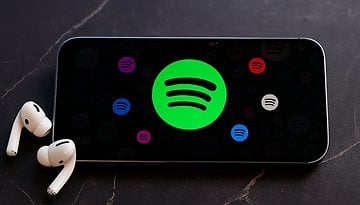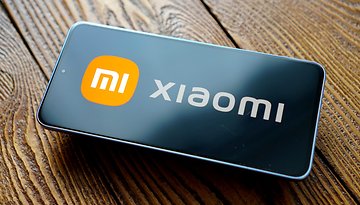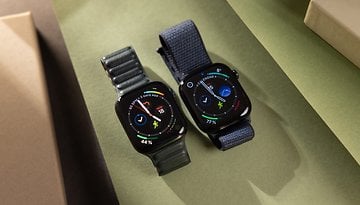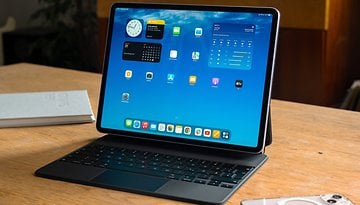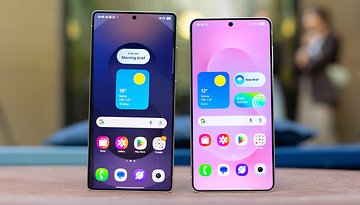Is Apple Really a Role Model for Eco-friendliness?
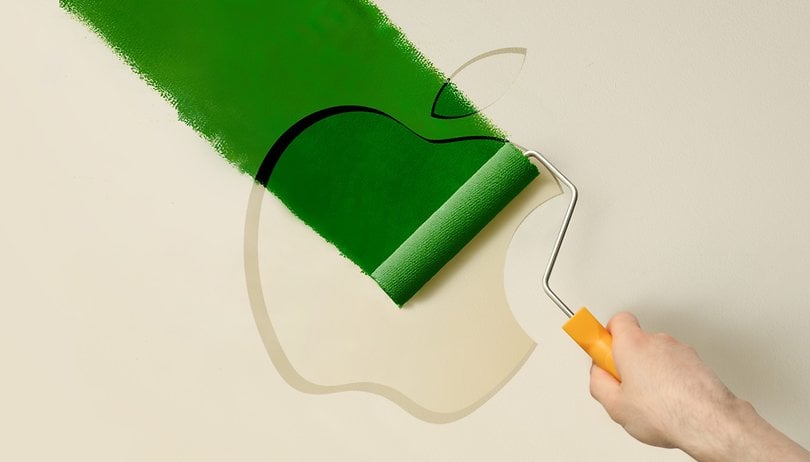

Is Apple the eco-friendly role model for the tech industry, or even for companies in general? At the recently iPhone event, there was plenty of talk about sustainability, recycling, and emissions reduction, and how the Apple Watch 9 was the first carbon-neutral product from the company. In this article, I would like to take a closer look at Apple: Has Apple really taken the right, sustainable path, or are we just dealing with greenwashing yet again?
There are two things that we would like to establish before we dive deeper here:
- This is only one article dealing with the topic, and I'm afraid nextpit cannot spare you anything further in the future. Recently, my dear colleague Camila Rinaldi already dealt with sustainability in detail in her article about microplastic filters in washing machines. By the way, I found your comments encouraging: This is a path we can and must continue to take because as shiny and fancy as a new smartphone may be, we need a paradigm shift in the way we use and talk about technology.
- This post is exclusively about Apple. This should be obvious enough since the new iPhones were just launched and Apple talked about sustainability at great length there. Apple also has more responsibility than most other companies on the planet, based on its sales figures alone. Nevertheless, everything we're about to discuss here naturally applies to all other companies as well. We're all in this together, and we'll only get out of it together!
Apple in 2023: Green, green, green are all my clothes
My head is spinning! Ever since last week's iPhone event where Apple brought up the issue of sustainability, I've been preoccupied with how green Apple really is. There is one very simple reason for this: some stuff that Apple mentioned about its environmental efforts sounded too good and too positive to be true. Hey, even Mother Nature was visibly impressed:
So I dug, and I dug deep! What's the verdict? We could have pulled out rows and rows of corpses from Apple's basement. Actually, my plan was to tell you in detail what kind of eco-mmunists (heh!) the folks from Cupertino once were. From poor to hair-raising working conditions in China, poisoned rivers, cobalt from African regions that are in crisis, and the use of child labor.
Cobalt is doubly problematic, not to mention the overexploitation of our planet: It goes without saying that Apple and other tech companies finance bloody civil wars in the region indirectly, not to mention Amnesty International had already warned at the time that children, some of them as young as seven years old, were being forced to work there under the most adverse conditions.
However, I decided not to judge Apple right now, where hastily applied green paint only made for a very temporary cover up of its crimson flow. Why? Well, I do not want you to spend an entire week reading this post and because I think it's fair not to accuse Apple of past sins, but to look at where they stand now.
After all, even Greenpeace virtually put Apple on a pedestal back in 2017 in its "Guide to Greener Electronics" report (PDF). Behind Fairphone, but with a massive gap ahead of the smartphone competition from South Korea and China, Apple astonishingly took second place.
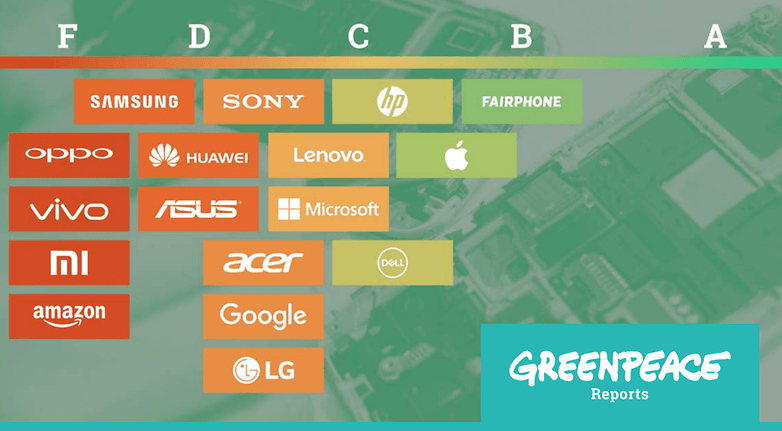
So let's forget that Apple, like every other damn company that operates according to the laws of capitalism, has literally shit on how good or bad the production of its own products is for the planet. Today, we're looking at what Apple claims it is doing. For that, I'll refer to Apple's latest environmental progress report (PDF) and the press release on the occasion of Apple's first CO₂-neutral products.
The Apple Watch is Apple's first CO₂-neutral product
When talking about carbon-neutral products, we are, of course, referring to the new Apple Watches. In the press release, Apple informed us that each CO₂-neutral Apple Watch model meets the following criteria:
- 100% clean energy for manufacturing and product use.
- 30% recycled or renewable material by weight.
- 50% of shipments are not transported by air.
This results in product-related emissions savings of at least 75% per model. Apple offsets the rest using "high-quality carbon credits" from SCS Global Services, which Apple touts as a leader in environmental standards and certifications.
Apple's environmental strategy until 2030
Apple also promised us that it will make all of its products carbon-neutral by 2030. At present, Apple proudly declared that emissions from its entire value chain have been reduced by over 45% since 2015. In addition, all company processes would already be carbon-neutral today. Other key data from Apple's green approach:
- More than 40,000 tons of e-waste were sent for recycling in 2022.
- 20% of all materials in products shipped in 2022 came from recycled and renewable sources.
- More than 300 suppliers, accounting for more than 90% of Apple's manufacturing spend, committed to using 100% renewable electricity to produce Apple products by 2030.
- In 2022, the 13.7 gigawatts of renewable energy used in Apple's supply chain avoided 17.4 million metric tons of CO₂ emissions—equivalent to the annual emissions of nearly 3.8 million cars.
- Over 70% of the average energy consumption of Apple products has been reduced since 2008.
- Plastic will disappear from all packaging by the end of 2024.
- All MacBooks, Apple TVs, and Apple Watches will rely on 100% recycled aluminum for their cases.
- Leather will disappear completely from now on and be replaced by the synthetic fabric "FineWoven."
- 100% of the electricity in all data centers, offices, and also Apple Stores is from renewable sources.
- In 2022 alone, 49 billion liters of fresh water were saved.
- Apple is committed to using 100% recycled cobalt in all Apple-designed batteries by 2025.
Looking at this list now, of which I could probably have gone on for another hour, I felt ambivalent about it. On paper, some of these are spectacular achievements. However, I cannot but shake the feeling that this is only half the story. Let's try to look a little behind this spotlight-flooded, green facade.
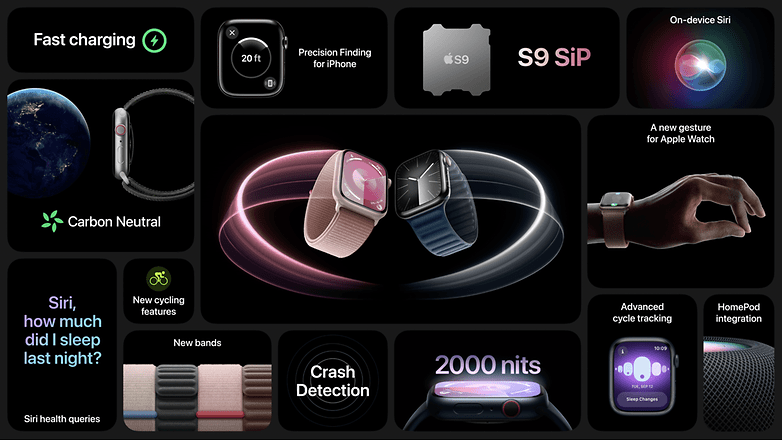
Is the grass really greener on Apple's side?
The catch lies therein: often, not all a company communicates in its strategy tells the whole story. After all, everybody wants to go green these days, or at least they want us to believe they're getting greener. Rather, the catch is, what companies are NOT saying. Do you want an example for me to substantiate my claim?
Apple wrote: "In 2022, 25% of the cobalt in our shipped products—double the amount in 2021—came from certified, recycled sources, including post-industrial waste and end-of-life used batteries from consumers". What Apple didn't say, is how 75% of the cobalt in Apple products did NOT come from certified, recycled sources!
This "what Apple doesn't say" narrative can be seen in the entire environmental report and, unfortunately, through the company's entire environmental protection strategy.
For example, they refer to 100% electricity from renewable sources in all offices, data centers, and stores, but don't tell you that this only accounts for two percent of the total electricity consumed by Apple. Apple has conveniently left out transport, suppliers, and all other players in the chain. Please don't misunderstand me: Just the fact that the huge data centers are already running on green power makes a real difference.

I will share one more example and stop there because I do not want to get on your nerves any longer with my Apple criticism, this I promise:
According to Statista, Apple sold around 239 million iPhones in fiscal year 2022. If we were to multiply that by 200 grams (as an average value for a smartphone), we come to about 47,800 tons of brand-new, future e-waste. Annually. The figure is likely to be significantly higher because Apple sold far more Pro Max models that weigh 240 grams compared to its smaller models.
From there, include other items: Macs, Watches, iPads, accessories, etc. If we were to contrast that with the 40,000 tons that Apple recycled mentioned above, 40,000 tons is still really a lot—but still far too little in this context.
The achievement becomes even more measly, but all the blame should not rest squarely on Apple's shoulders, when we hear from the UN that there were 53.6 million tons of e-waste in 2020 alone. That would be three times as much every day as Apple recycles in an entire year. Is your head spinning? Yes, mine too, as I warned you at the beginning.
Conclusion
What must Apple do?
So, let's take a deep breath and summarize things. I read a bunch of articles and watched many videos. It wasn't always just about Apple, but about sustainability and the greenest possible technology itself. I can reveal this much: Once you get into it, you will go so deep into the rabbit hole, it is impossible to find your way out again. This rabbit hole is even deeper than the mountain of electronic waste generated annually.
There are still so many aspects that could not be considered in this article (planned obsolescence, anyone?) and, yes, also the numerous efforts by Apple that remained unmentioned. That's why I'd like to recommend the company's environmental report to you, which has over 100 pages of really interesting stuff to browse through.
You can read how Apple is trying to reduce or recycle rare earths, how transportation has to be rethought, and so much more.
For now, let's talk about what I expect or should expect from Apple. To make life easier for everyone, I would reduce it to a single sentence: Apple, be honest, please!
Of course, one sentence is never enough. To be a bit more detailed:
Dear Apple,
Don't give us any more crap, please! I believe in you that you have done plenty of good along the way, this much I can say.
But please don't pretend that you have done EVERYTHING for the betterment of the planet. Sure, you save space and material because you don't put chargers in the boxes. However, you are famous for having so much adapter and cable clutter and making us unnecessarily buy zillions of ever new accessories, producing even more e-waste in the process.
You mention better repairability and then use so much glue in every MacBook and iPhone that everything comes unstuck when we want to repair your devices ourselves (pun intended!). Speaking of repairability: Why don't you do it like Fairphone and let us conveniently replace batteries, cameras, and other parts? Where is the modular iPhone?
Please don't treat us consumers like idiots. We understand that you do a lot for the planet, you have harped that often enough. However, why don't you openly tell us that you are using this greenwashing front to rake in even more money? Nobody would hold it against you because it is your right to earn money.
I would therefore like to see you refer to the poor planet in a less affectionate manner, and instead confidently go ahead and declare that you want to continue to be the most valuable company in the world, albeit thanks to green(er) technology now.
By the way, if you were really primarily concerned with environmental protection, you would have handled your finances quite differently. Last year, you generated almost a hundred (!) billion in profit alone. It is time to share the love and pay every employee, no matter how small, a fat bonus, for instance. Sustainability also means the people who solder, transport, and sell iPhones can have a better quality of life.
Yes, you do a lot, I realize that you could do so much more. And the joke is, by being such a great role model, everyone would emulate you and even more people would jump on your product bandwagon to let you earn even more. Think about it.
With much love,
Your Casi
What we have to do
Oh, here is one last thought from me. Sustainability is not just about politics and companies, it is also about us as consumers. We can all pitch in to make the decisive difference.
Basically, the most sustainable technology gadget is the one you don't buy. The most sustainable smartphone repair is the one you don't make. The cleanest energy is the energy you don't use. What do I mean by that? Don't buy a smartphone if you can avoid it, but use the existing device as long as possible. Each newly purchased device and every newly installed spare part kicks our planet's butt again.
So treat your technology with care, bid goodbye to any "I need the best, newest gadget every year" mantra, and don't let companies like Apple, but also Samsung, Xiaomi or anyone else tell you that you have to replace an old phone with a new one every year.
If you ask me, Apple is on a really good path of getting rid of this greenwashing label attached to the company. More and more, I get the impression that the company is serious about this matter, which could encourage other companies to join in.
However, I also wonder if you're on the same frequency as me: What do you think of Apple's efforts to help the planet? Do you buy it, or do you still think it's greenwashing? What suggestions would you make to Apple for more sustainability, and what are you doing yourself to set a good example? You are welcome to let us know in the comments, but do it fairly, no matter what your opinion is.






